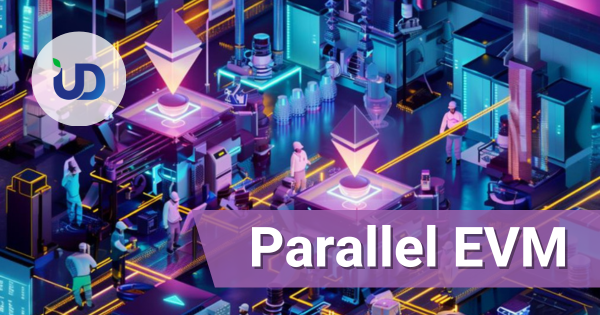Parallel EVM: Unlocking Ethereum's Scalability Potential & Faster Transactions
The Ethereum blockchain has revolutionized the world of decentralized finance and applications. However, its sequential transaction processing struggles to keep pace with growing demand. Enter Parallel EVM, a bold new approach promising to unlock Ethereum's true potential by processing transactions in parallel, paving the way for a faster, cheaper, and more scalable blockchain future.
What is Parallel EVM?
Think of the standard EVM (Ethereum Virtual Machine) as a single worker processing transactions one at a time. Parallel EVM is like deploying a team of workers who can handle tasks simultaneously, significantly boosting efficiency and throughput.
Key Difference
Standard EVM: Transactions are executed sequentially, creating bottlenecks as network activity increases.
Parallel EVM: Transactions are analyzed for dependencies and divided into independent groups, allowing them to be executed concurrently on separate processing units.
Benefits and Challenges of Parallel EVM
Benefits:
Faster transactions: Imagine waiting in line versus having multiple checkout counters – transactions are confirmed quicker, improving user experience and enabling real-time applications.
Reduced fees: Less congestion means lower gas fees, making blockchain interactions more affordable for everyone.
Increased scalability: Parallel EVM breaks the transaction throughput barrier, paving the way for widespread adoption and new use cases.
Improved user experience: Faster transactions and lower fees enhance user engagement and platform usability.
Security: Some Parallel EVM designs offer unique security advantages, depending on the specific implementation.
Challenges:
Technical complexity: Implementing parallel processing without compromising security and decentralization requires advanced cryptography and consensus mechanisms.
Interoperability: Integrating Parallel EVM with existing Ethereum ecosystem components requires careful design and collaboration.
Regulation: Navigating evolving regulatory landscapes for parallel blockchains presents additional challenges.
How Does Parallel EVM Work?
There are several approaches to achieving parallel processing, each with its own strengths and limitations. Here are two prominent strategies:
1. Optimistic Rollups: These off-chain solutions bundle transactions and execute them in parallel before submitting them to the main chain for verification.
2. Sharding: This method divides the blockchain state into smaller "shards," allowing multiple transactions within each shard to be processed concurrently.
The specific implementation details of a Parallel EVM depend on the chosen approach. Some projects focus on parallelizing smart contract execution, while others tackle transaction verification and state updates.
The Future of Parallel EVM
Parallel EVM is still in its early stages of development, with several projects actively exploring different approaches. As research and development progresses, we can expect to see:
1. More efficient and secure parallel processing techniques.
2. Enhanced interoperability with the existing Ethereum ecosystem.
3. Adoption by existing dApps and development of entirely new use cases.\
The potential of Parallel EVM to address Ethereum's scaling challenges is undeniable. By harnessing the power of parallel processing, we can unlock a faster, more accessible, and ultimately more inclusive blockchain future.
Examples of Parallel EVM
Sei Network: A Layer 1 blockchain with a native, built-in Parallel EVM.
Optimism: A prominent Layer 2 scaling solution utilizing optimistic rollups.
Aztec: A zk-Rollup scaling solution exploring parallel transaction processing.
Ethereum Research: Exploring and discussing various approaches to scaling Ethereum.
UD is a leading blockchain and network security solution provider in Hong Kong. We are dedicated to assisting enterprises in advancing their businesses through innovative blockchain technology, ushering in a new era from Web 2.0 to Web 3.0.





